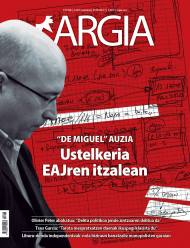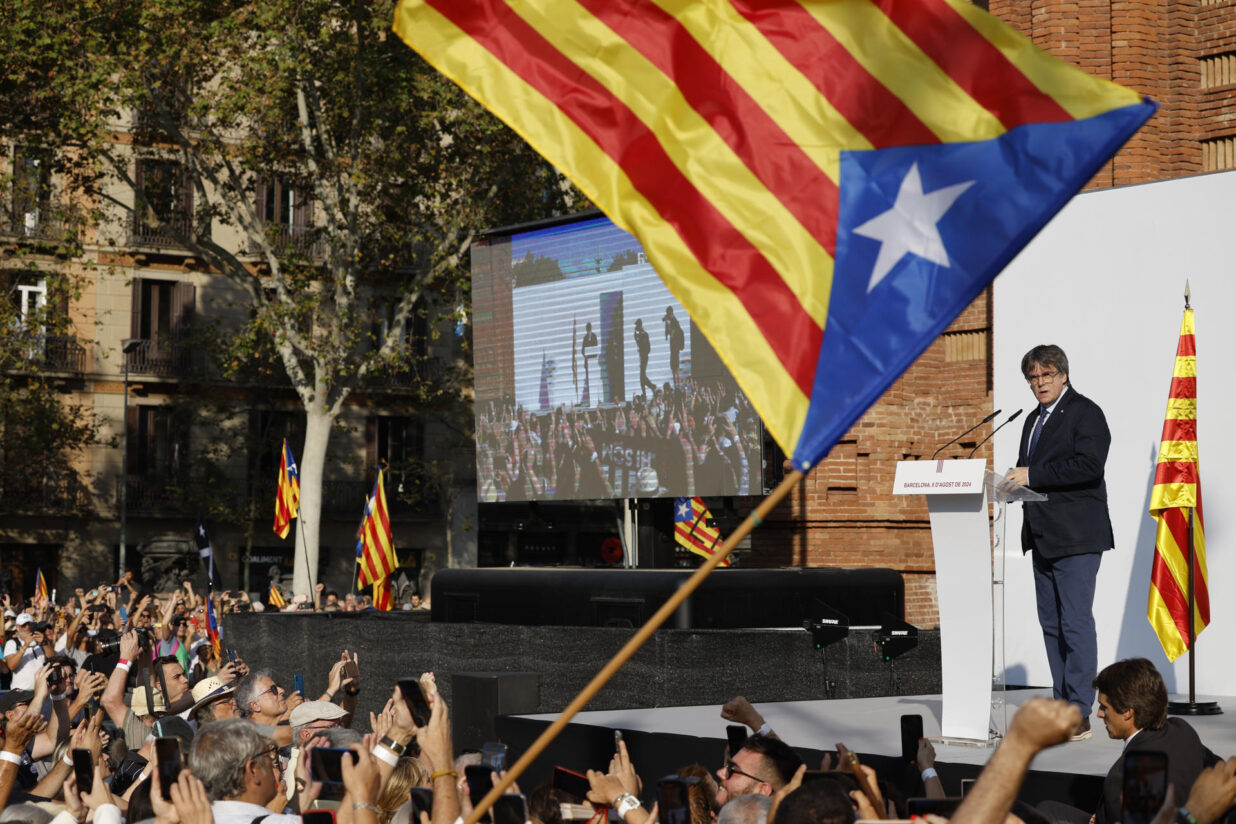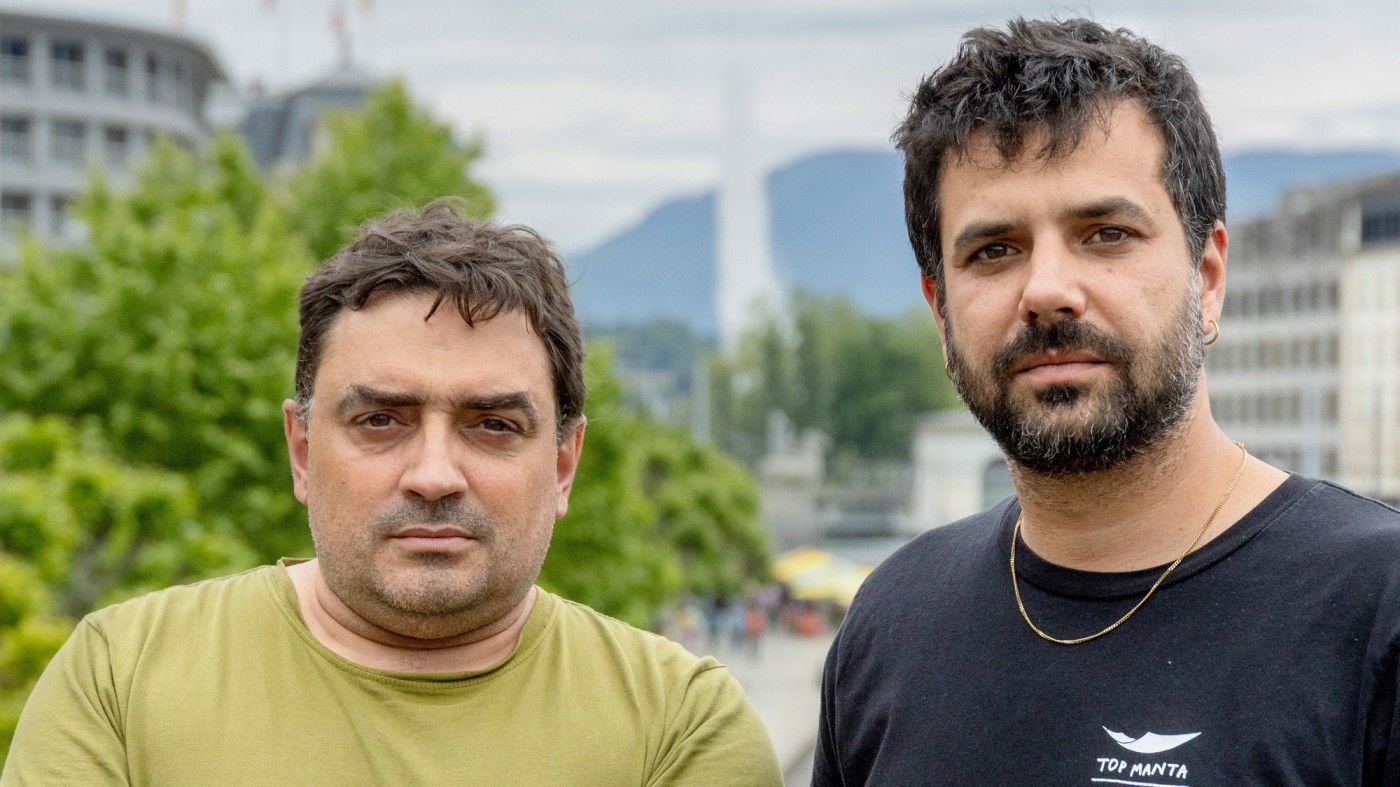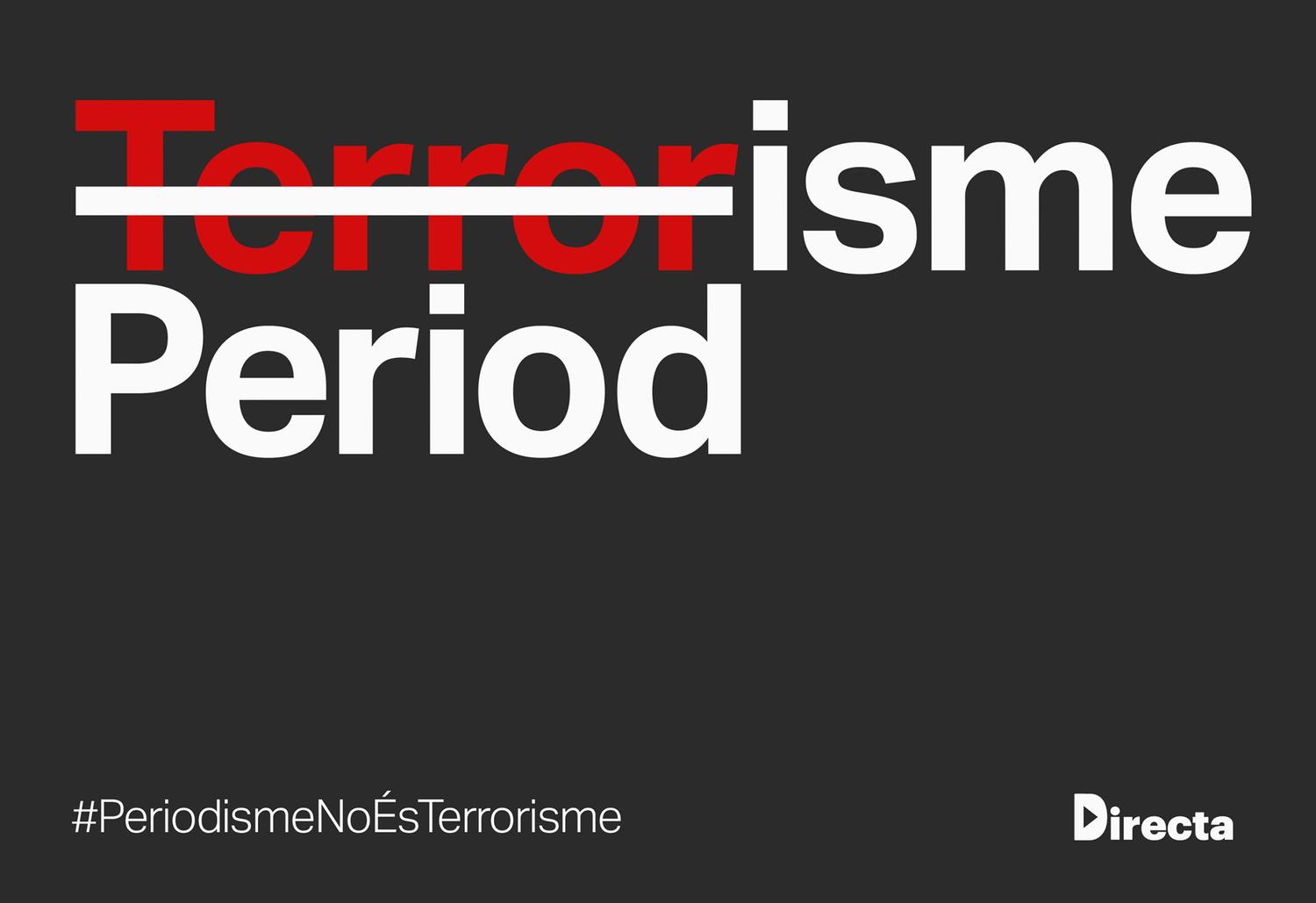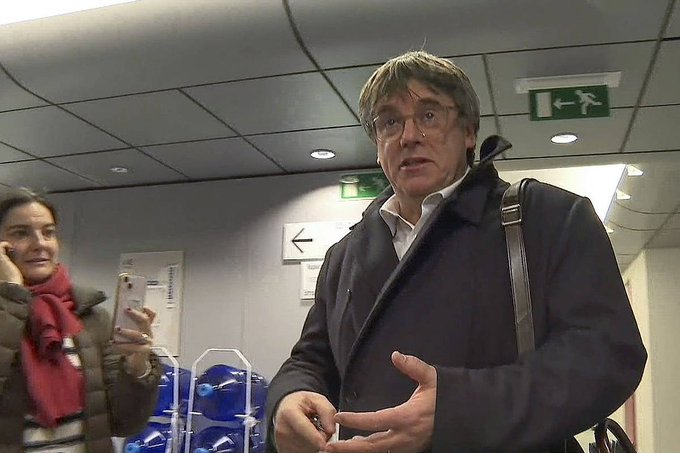"Political crime is a crime of honest people."
- Olivier Peter (Zurich, 1986) is a lawyer for Anna Gabriel Sabaté, a former member of the Cup-Crida Constituent, exiled in Geneva (Switzerland) and a member of the Permanent Commission. He is a specialist in human rights, international criminal law and extradition. The anti-capitalist militant has asked for advice from the young Swiss legist. Peter doesn't like interviews, but he's been willing to talk to La Direct. Due to the relationship between the two media, at ARGIA we want to offer an interview in Basque to the Basque readers.
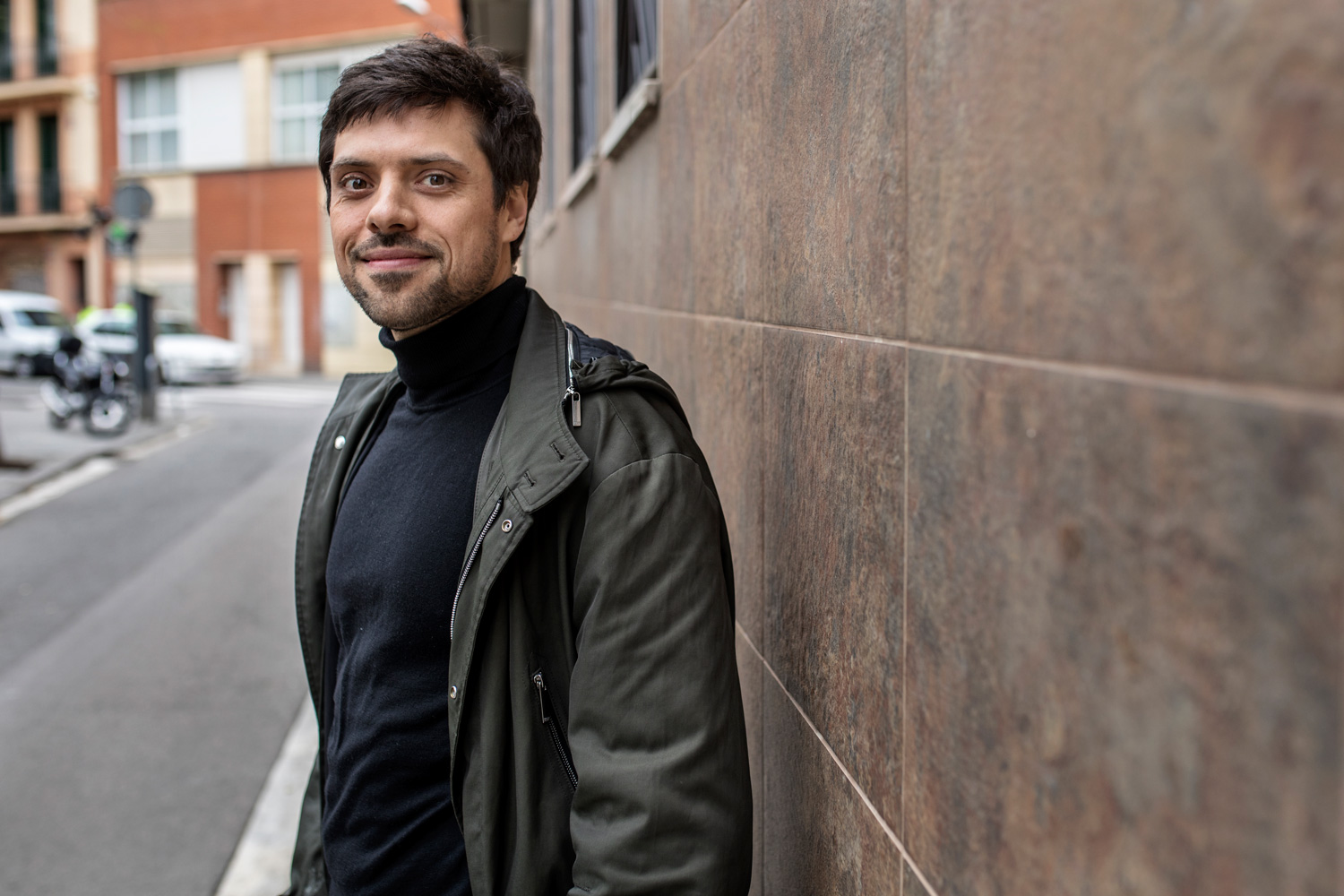
Your role has started in Catalonia when Anna Gabriel has decided not to stand before the Supreme Court and leave for Geneva. What is the situation with regard to the proceedings against you?
We are aware of the indictment of a crime of disobedience against him, and since this is a political crime of little seriousness, there is no extradition request. As there is currently no procedure in Switzerland, my mission is to advise Anna and ensure that her rights are respected.
What are the requirements for an extradition request?
A minimum of one year in prison. In the case of Anna, due to disobedience, a penalty of disqualification of between three and twelve months would be appropriate. At first he is charged with a crime of rebellion, but under Swiss domestic law and Swiss agreement with the European Council states, no one can be extradited for political crimes. And this crime is clearly political.
What is Switzerland’s position on the procedural situation of Anna Gabriel, the crimes against him and the assumption of accepting the extradition request?
Switzerland made a rather surprising statement after knowing the presence of the anti-capitalist militant in the country, when the Spanish Minister of Justice, Rafael Catalá, assured that an extradition "would not cause special problems". The spokesman for the Catalan counterpart said that these were political crimes and that Switzerland did not extradite anyone for political crimes. “If there is any request, we will analyze it, but it seems they are political crimes and, if so, we will not extradite it.”

Does Switzerland’s absence in the European Union make a difference in the way extraditions between the Member States work?
There is a European Commission convention, called the European Extradition Treaty of 1957, which was used between European states until the European Union decided to have its own law on the surrender of persons, which regulates what is now known as a Euroorder. This new EU mechanism replaces the previous one for the Member States, but Switzerland is still absent and adhered to the old agreement. The third article in it explicitly states that no one will be extradited for political crimes.
Have you studied seeking political asylum or can Gabriel continue to live in Switzerland as in recent months?
A treaty with the EU in Switzerland gives EU citizens the possibility to apply for a residence permit three months after they have come there. Although I am not going to go into details of the situation, I can confirm that he currently lives legally in Switzerland with a residence permit and that there is no need to seek political asylum.
"Anna Gabriel legally lives in Suintza and there is no need to seek political asylum"
He says that the crime is political and that Gabriel left because he did not have the guarantee of a fair trial in the Spanish state. What are the keys?
The bias of the judges investigating this case is evident. The requirement for an impartial and independent court is the necessary basis for the rule of law and, as in this case there is no possibility of fair trials. Probably the only fair trial in this case would be to suspend the cause and let people vote.
Why was Switzerland considered to be the best option?
If Anna has tried with Switzerland, on the one hand, it is for symbolic and political reasons. The seat of the UN, as well as that of the Human Rights Council and other international organisations, is a diplomatic centre that has developed popular democracy and the holding of referenda more than other countries. On the other hand, on a legal issue: the process of the convention to which we referred earlier is different, takes into account whether the political nature of crimes is or is not, and is therefore longer and more complex. It is surprising, however, that processes as fast and simple as the Euroorder extend over time. He evidences the weakness of Paul Llarena's arguments.

How do Swiss society and institutions perceive what is happening in Catalonia and the Spanish state?
Until 1 October we knew that there was a strong independence movement and a conflict. The Spanish State’s response to this demand, police violence, impunity and, above all, the international account of what has happened by the Spanish Government, demonstrate that Carles Puigdemont’s thesis, which enjoyed greater visibility, is the right one: that exceptional democracy and a violation of civil and political rights are taking place.
"They have shown that Puigdemont's thesis is correct: that a violation of civil and political rights is taking place"
Is it seen in the judicial sphere that the Spanish State does not defend the rights of its citizens, as other European states?
When the presence of Anna Gabriel was announced in Switzerland, professionals from all segments of the ideological spectrum recognized in the press the existence of political persecution by the Spanish judiciary.
What social support does Anna Gabriel have in Switzerland?
There are minority militant sectors that defend their view of the cause of the CUP and the independence left. Then a much wider sector recognises the freedom of Anna and anyone harassed to express themselves politically. They do not agree with the independence approach, but, even if they could vote, they would vote no, they claim the right of these people to vote and to express themselves. There are many and not only are they expressed orally, but the concrete and material support that Anna receives is enormous.

Does the Spanish State respond diplomatically to Switzerland of the movements from Catalonia? What happened to Hervé Falciani a few months ago? Was it an attempt to change the chromes?
The timing of the arrest of Falciani, when Switzerland asked for the surrender of this person had been on the table of the National Court for one year, once again evidenced the lack of independence of the judiciary and its subordination to the interests of the government. The arrest of Marta Rovira took place ten days after he was known to be in Switzerland, according to the sources. It is a coincidence that cannot be explained in any other way.
"The concrete and material support Anna receives is enormous"
We don't have much information about diplomatic movements. We know that the foreign minister of Spain, Alfonso Dastis, met with his Swiss counterpart, Josu Urrutia. That is the only concrete action. He came with many demands and turned empty hands. The Swiss Government told him that if he wanted to extradite two people he would have to file the requests correctly, that this is not an exchange of hostages, but the use of the laws in force.
For Swiss society, it was quite incredible in an interview on public television, in which Minister Dastis communicatively explained how badly he had argued his position. Because Puigdemont is an ordinary criminal to surrender and the Constitution prohibits the referendum from being held. The denial of the political conflict clearly undermines the credibility of the Spanish Government.
You are an expert at the European Court of Human Rights in Strasbourg, what use can an appeal be made to European justice, taking into account the prolongation of the time involved in this process?
Except in cases of high risk of death or torture, European justice does not impose provisional measures. Therefore, these are not provisional measures, but procedures that can be extended for between three and eight years.
I do not believe that we should expect European justice to solve the problems in the short or medium term. However, the violations of fundamental rights currently taking place require some recognition. It is a race of substance and a long-term struggle. Even if they arrive in ten years’ time, they can be useful in recognising that what is happening today in Catalonia cannot be accepted and that it is a violation of basic political rights.

At the moment, Anna Gabriel has an arrest warrant on Spanish territory, but the crimes against him do not have a prison sentence. Can it be a ploy if it brings it back and when it is here it charges new crimes?
We have no confidence in Spanish justice, we do not know what they want to do. However, it is clear that he will not return as long as there is a risk of arrest and/or unfair procedure.
When will this risk cease?
I don't know, you'd have to ask the lawyers here -- either the day of the Republic or the day they say. A political crime is a crime of honest people. I do not believe that Anna or the other exiles have committed any crime. And if you've done that, it's a crime for good people.
Walk from a train station, two friends and a hug. This hug will be frozen until the next meeting. I'll come home, he'll stay there. There, too, will be free the painful feeling that injustice wants us to catch. Jesús Rodríguez (Santa Coloma de Gramenet, 1974) is a journalist,... [+]










